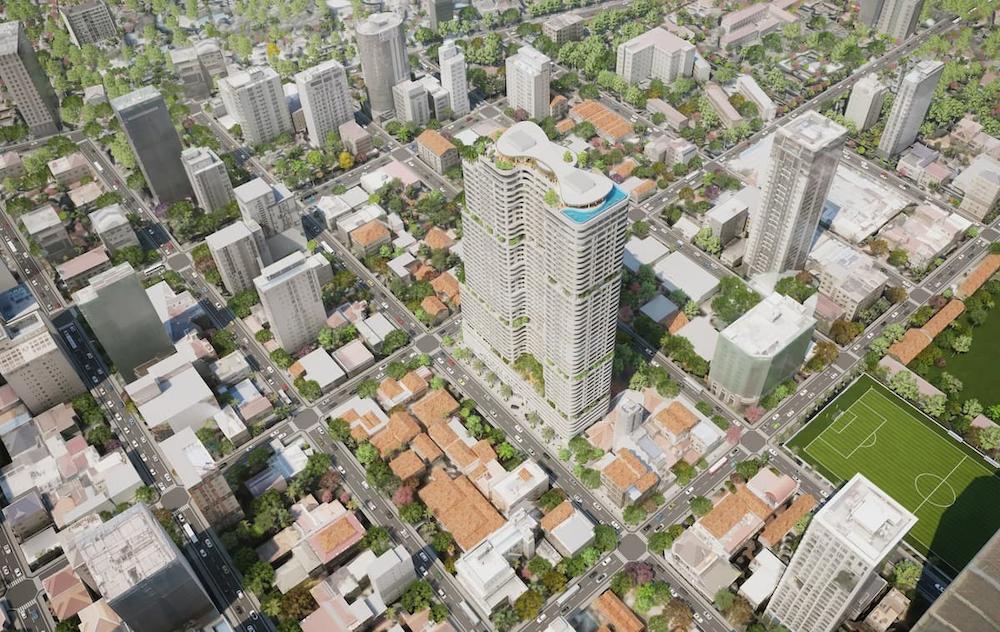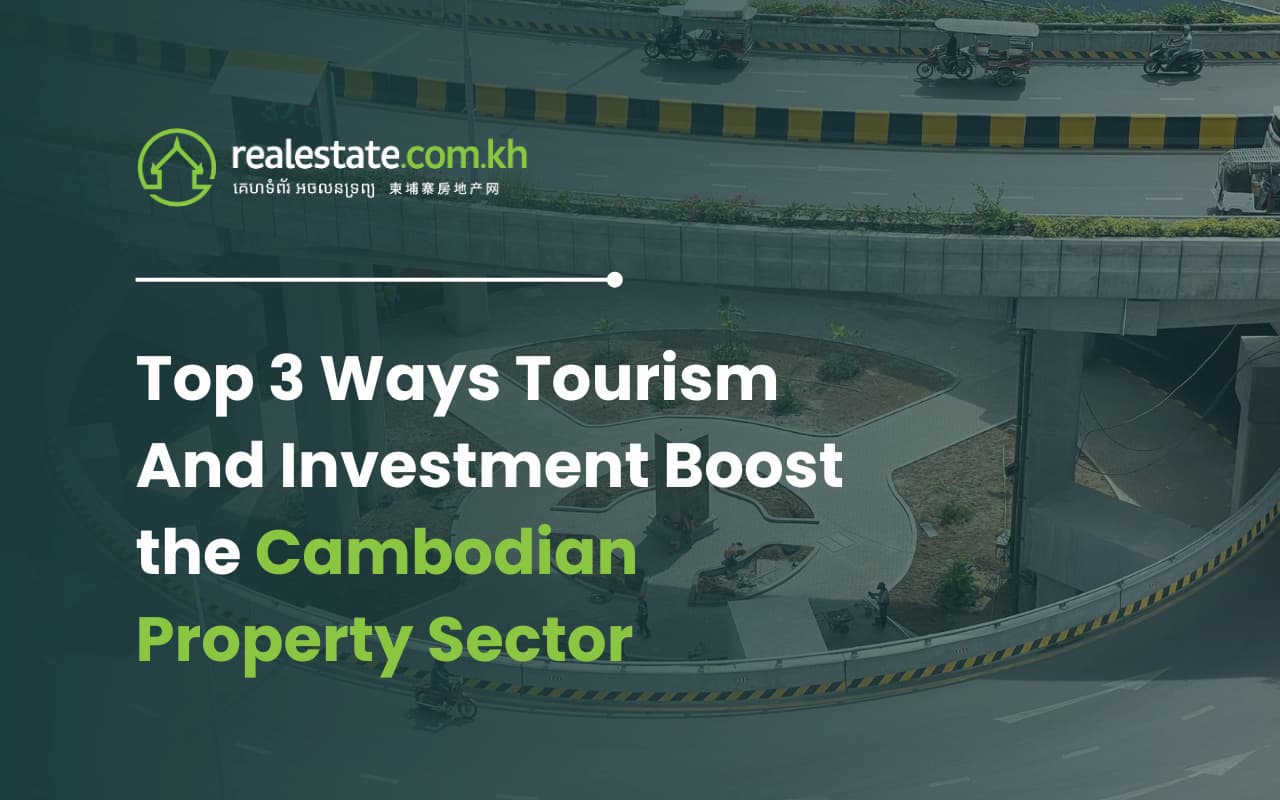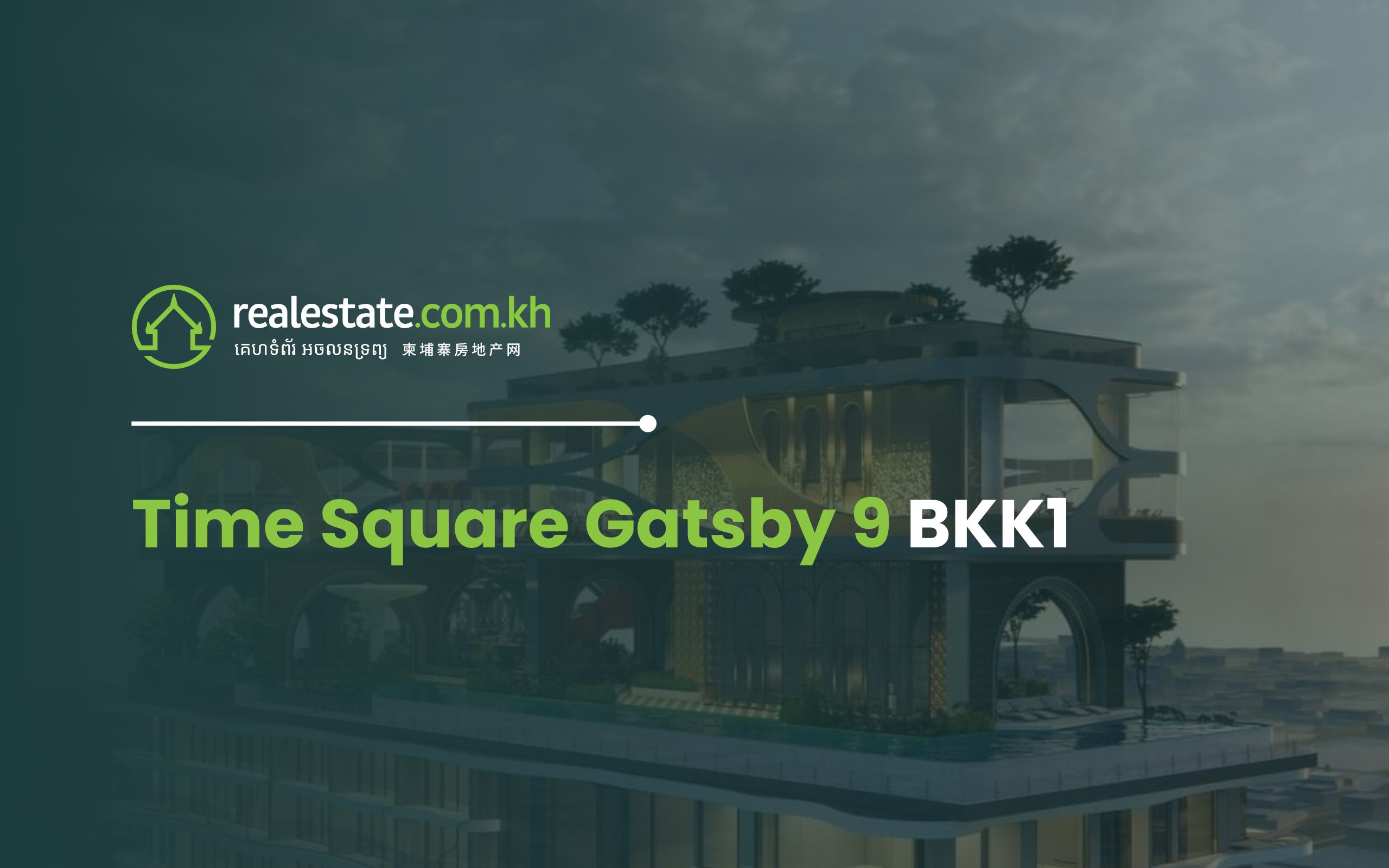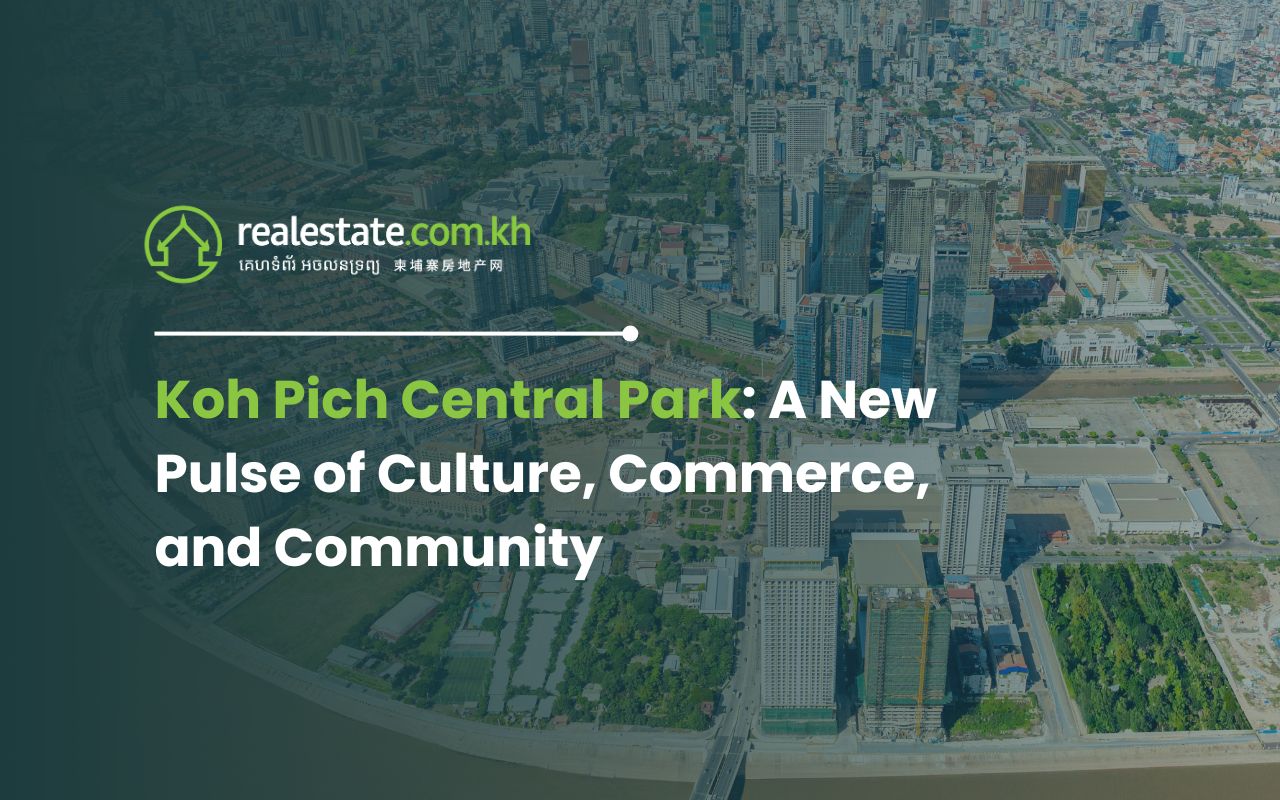Many foreign nationals have chosen to buy property in Phnom Penh, Siem Reap, Sihanoukville, Battambang and other emerging urban hubs in Cambodia.
With inbound tourism and visitors set to increase in 2023, especially from China, there will be increased demand from international property buyers looking for investment opportunities in Cambodia. The government hopes tourism growth in 2023 will reach 4.3 million international tourists (double the number from 2022).
Some investors might not be permanently based in-country, and even if they have relocated here, it's useful to understand certain key aspects of property management in Cambodia and what services are available, whether you are a remote landlord or not.
What Are Some Of The Key Reasons To Buy Property In Cambodia As An Investment?
There could be several reasons why anyone would buy property as an investment. For Asian UHNWI (ultra-high net worth individuals) for example, real estate is an important store of wealth and assets remain a key part of a mixed portfolio.
Cambodia is quickly establishing itself as a global destination for investment and living for international communities. The country has a positive outlook for economic growth and political stability, while the new Cambodia investment law further promotes favourable international investment.
There is also no freehold on foreign exchange in Cambodia and there are no restrictions on the remittance of capital or profits into or out of Cambodia (1997 Foreign Exchange Law).
Buying real estate as an investment means:
- Access to US Dollar assets at a relatively low cost
- Diversify risk through asset portfolio allocation
- Positive (possibly passive) cash income from renting out the property
- Source of income in retirement
- Freehold property rights can be passed on to the family
- A second holiday home
Prime condos were priced at USD $2,189 per sqm by the end of 2022. In terms of the condo supply, this reached 28,000 units across 95 buildings in Phnom Penh at the end 2022, and is projected to increase by over 50,000 units to reach a total of 80,000 by 2025 (realestate.com.kh data).
The urban population of the Kingdom is also expected to increase substantially, rising from 4.3 million in 2014 to nearly 8 million people by 2030.
What Does Property Management Entail?
Even before purchasing a condo in Cambodia, you should have a certain base level of knowledge about the property and its implications.
Property management refers to taking care of the essential aspects of maintaining a property, and also keeping tenants satisfied if you are renting the condo.
In condominiums, in particular (and we are focusing on this type of property as they are the most common and legal form of property ownership for foreigners in the Kingdom), this might include maintenance of lobbies, passenger/service lifts, and common areas used by co-owners and tenants in the property or all aspects of the condo itself such as electrical and plumbing, paint, decoration and other utilities.
Within condos, a homeowners’ association (HoA) can also be formed by co-owners in Cambodia and is usually formed once a building is 70% occupied. The HoA might pick a property management company to maintain shared spaces paid with fees collected from the tenants/co-owners.
Who Will Manage The Property?
Investors can benefit from engaging with project-based Rental Management Agreements, the services of a 3rd Party Property Management Company, or using a trusted associate to manage the letting of a property if they don't want to take care of the day-to-day management.
The Ministry of Economy and Finance has issued licenses for property management in Cambodia since 2015-2016 and the industry continues to improve and develop, so it's recommended to take some time to research and speak to several reputable agencies if that's the direction you are looking to take.
Facilities Management refers to maintaining the exteriors and interiors of the condo including windows, landscaping, driveways, lobbies, passenger lifts, gyms, and other shared facilities. Often, the fees paid as part of the management fee cover the facilities management in a condo.
Physical Management is the service provided within individual properties and is applied more to buyers who purchase for investment purposes and require someone on the ground to manage their properties. This service allows overseas-based investors to manage their properties in Cambodia without physically being in the country.
What Are The Benefits Of Property Management For Overseas Investors?
As detailed here, if you are a property buyer in Cambodia but based overseas, there are benefits to using a reliable property management service.
- Allows investors abroad to oversee their properties - During the recent COVID-enforced travel restrictions, many found themselves unable to manage properties from abroad. Investors might find it easier to hand over the responsibilities to a professional local service.
- All-Inclusive Solution to manage multiple properties - If foreign investors intend to purchase multiple properties, managing these can be time-consuming.
- Hassle-free Tenant management - Tenants (if the properties are being rented out) might leave and need to be replaced. The Management companies will screen new tenants, take care of the FPCS (if needed), lease and documentation and handle all requests from tenants. For overseas-based property owners, especially if there is a time difference, this could be a huge time-saver.
Services offered by realestate.com.kh, include a complimentary marketing campaign to ensure occupancy of a unit if buyers purchase through them.
What Costs Are Included In Property Management In Cambodia?
Property management fees in Cambodia can range from $1-2 and are multiplied by the gross area in square metres. The gross area refers to the size of the unit itself as well as the share of the common areas.
Sinking Fund - Some Cambodian developments allocate a portion of fees for a separate sinking fund used to address unforeseen expenses for the building.
Tenant screening and leasing - These are classified as optional services and would cost a nominal fee (around 10% of the rental fee).
Dispute resolutions - These are also classified as optional services and cover instances such as tenant evictions.
Should You Be Buying A Condo In Cambodia Now?
Some of the main considerations in the Cambodian market are location and potential for growth in the long term, as well as safety and security. Having some insight into what is planned in the area in terms of access to amenities would be beneficial - Cambodia is still rapidly developing and cities are expanding while the wide-scale modernisation and tenant expectations are constantly changing.
Results from the Realestate.com.kh Real Estate Survey 2022 indicated that 90% of respondents thought that property was a good investment in Cambodia. And that condos and apartments were the second most popular property type to buy.
Cambodia is expected to register a 5.6 per cent GDP growth in 2023, according to the Ministry of Economy and Finance, and although the Cambodian construction sector is set to see modest growth of 1.7 per cent in 2023, and real estate is expected to achieve similar marginal growth of 1.2 per cent this year, investment opportunities should be based on mid to long term prospects depending on the goals.
With rising global demand, increased foreign investors’ confidence (and new favourable laws), as well as the full reopening of Cambodia’s borders, the Kingdom is anticipated to do well economically in the future and it could be an opportunistic time to purchase property in Cambodia whether as a home, investment or retirement property.




Comments